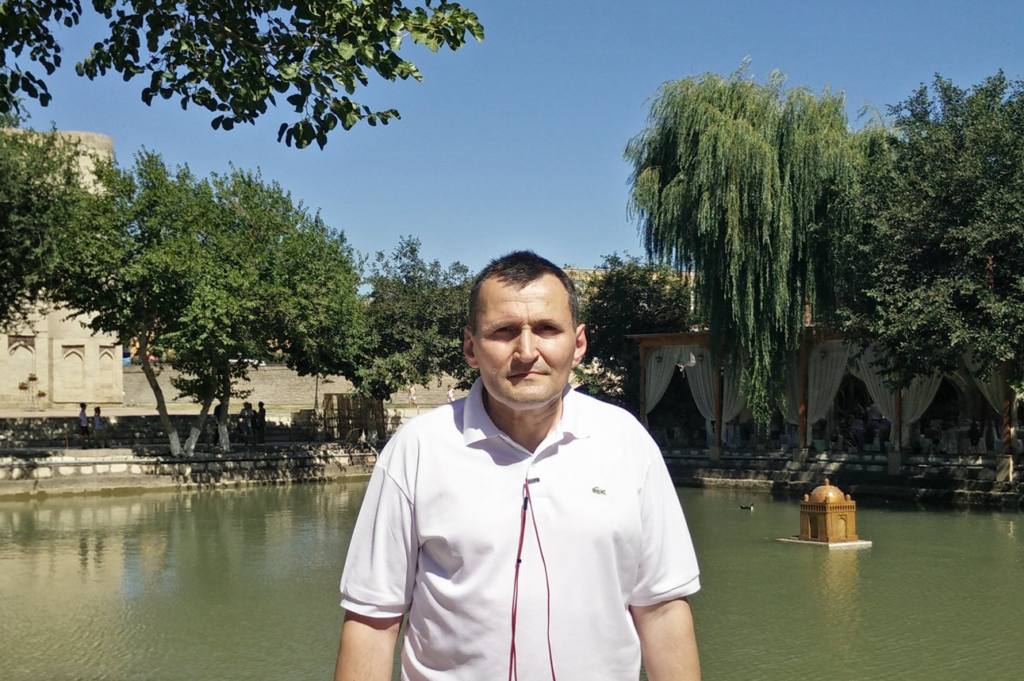Andrey Yarovoi: expert of the regional expert group (REG) of the program “Partnership” implemented by the ECUO. Member of the ENPUD Coordination Council, a member of OST Association of Ukraine.

On September 18-19, in Bishkek, Kyrgyzstan, was held the National Conference “New challenges: HIV and TB”, in which we, the experts of REG ECUO took part.
For these two days, we managed to conduct a range of meetings with local activists of the community of people who inject drugs and try to understand the situation with access to the program of HIV prevention and treatment for drug users in the Kyrgyz Republic.
Here I want to tell a couple of words about my impressions.
At a quick look, the situation is fine: any person who injects drugs can easily enter the OST programs, no queues and standby lists, you only have to accept the treatment. The participation in programs is free; moreover, they are available in prisons for all who wishes, amazing.
Local drug policy is over criminalized and has all symptoms of the punitive one.
At the same time, the number of OST patients in Kyrgyzstan do not increase, practically, new people do not enter the program, and most IDUs are forced to remain the illegal users, which becomes impossible to cover them with HIV quality services. Why does it happen?
Because the local drug policy is over criminalized and has all symptoms of the punitive one.
Judge for yourself: if you got caught on storage for personal use (and if you use, sooner or late, you certainly get caught), the good people would not put you in jail! The court will appoint penalty that you must pay in a certain, concise term. Because the amount of these fines are high, people have no capabilities to pay them out for years and, so they are forced to hide, remain illegal. It is clear, that no one can undergo treatment in such situation.
Even if you managed to pay out to the state and entered the treatment program, it doesn’t mean that all will like this fact and will allow you to live and treat without obstacles. For example, the police employees now realized that those who they were hunting for years on the streets, became in their full access – you can just come in the morning to the OST site and wait.
Also, there are issues among those IDUs who are in prisons, as if they decide to quit heroin and go to OST – they become outcasts among their prisoned comrades. The causes of this phenomena also lie in a purely economic layer – criminal authorities, seeing that people cease contributing money for heroin to the common fund, they start to stigmatize the quitters and otherwise blacken the program.
Those IDUs who are in prisons and decide to quit heroin and go to OST become outcasts among their prisoned comrades.
Thus, on the one hand, the OST program runs everywhere, and one can treat unlimitedly. And on the other, people do not enter it, and HIV among IDUs continues to spread, infecting more and more members of the community.
Therefore, if not to change the punitive approaches in the national drug policy, the IDUs will not have access to quality services in Kyrgyzstan, and one cannot hope for something else. Unfortunately.
The visit of Andrey Yarovoi, expert of REG ECUO, to Kyrgyzstan was held within the regional program “Partnership for equitable access to HIV care continuum for all who need it in EECA” being implemented by the East Europe and Central Asia Union of People Living with HIV (ECUO) at the financial support of the Global Fund to Fight AIDS, TB and Malaria.
